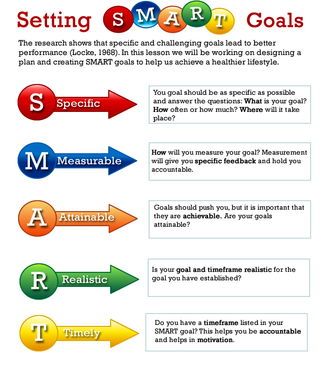 One of my favorite movies is Office Space, and in the movie the main character has a really rough start to his week (TPS reports, 8 bosses, traffic, and getting static shocked by the door). He has a "case of the Mondays." If you've seen the movie, you have that line stuck in your head now. You're welcome. Pastors aren't immune to a case of the Mondays. We're coming off a very emotional day on Sunday with worship, preaching, meetings, spiritual crises, and more. We've poured everything we had into our message and are on empty afterward. To flip the calendar to a Monday and have to restart everything might sound discouraging and daunting.
Some pastors respond to this by taking Monday off. They're so emotionally drained after Sunday they need a day before they can bounce back. They'll do yard work, projects around the house, and step away from the meat grinder of ministry for a day. It's their Sabbath. If that's you, go for it. Some guys are able to do that and function and process and be ready to roll on Tuesday morning. Everyone has a different way of handling their Mondays. Some people knock out meetings on Monday. Others do all their administrative work and are "peopled out" for a day. It's part of how God has uniquely wired each of us. If I can offer a few suggestions for kicking your case of the Mondays: 1. Write thank you notes - One of the things I've been most blessed by lately is writing thank you notes on Mondays to people who made Sunday awesome. It's helped me be more grateful and appreciative of all that goes in to make Sunday happen. This week it was for people in our children's ministry who jumped in as volunteers to cover for stomach bugs! 2. Follow up with guests - Quick phone calls, emails, texts, and social media contacts are some easy ways to connect with people who visited on Sunday. For me it's a source of joy to talk to people who made it a priority to visit us. I love hearing their story, asking who made their visit special, and what we can do to minister to them. Sometimes Monday is a pastor's worst enemy, when we don't feel like we got anything accomplished on Sunday. But hearing from guests is a quick remedy. 3. Map out the week - I love iCal because it lets me schedule things in blocks and shape out the week, color coded by function. Monday is the time to lay out doctor's appointments, sermon prep time, meetings, ministry commitments, personal activities, and more. And what I love about block scheduling is that if emergencies arise, all I have to do is move the block. 4. Do mindless work - Type out agendas, answer emails, tidy up your office, update spreadsheets, look at attendance numbers, and make Powerpoints. None of those take critical thinking energy, and you can knock out a lot from a weekly to-do list in one day. Whatever and however you do your Monday, do what you need to so your week can thrive and be most faithful and effective in ministry. How do you kick your case of the Mondays?
3 Comments
One of the biggest complaints from leaders is that they don't have time to get everything done they wanted to, that they're "too busy." It's true there's way more expected of leaders today, especially in ministry, than a generation ago. But the problem isn't because of greater expectations and longer to-do lists, it's a problem of priorities. That's why I don't think we have a busy problem in leadership, we have a mixed-up priority problem.
Think about it for a minute, you can always find a couple hours to watch football on a fall afternoon, or a morning on the lake, or to interact on Facebook. We make time for what we think is most important. That's priorities. Aligning your productivity with your priorities won't take away the stress level of leadership, but it will free you up to focus on what's most important and devote less time to what's not (You can read more about Urgent & Important through the Eisenhower Decision Matrix). 1. Schedule Interruptions - We're surrounded by the interruptions of text messages, emails, and other instant correspondence. So build blocks into your schedule to account for these interruptions. Close your email application on your computer or change the settings on your phone so you don't have the constant ding. If you check and respond to this on scheduled intervals, it provides you uninterrupted focus time. *Note: Emergencies are a different story 2. Delegate - There's a big difference between delegate and dump. When you delegate, you're giving away leadership which helps spread your influence. Delegation involves giving both responsibility and authority. If you give someone an area to oversee, they need the freedom to lead and decide without getting your approval. Delegate as much as you can. It might hurt, but there's not much that only you have to do. When you delegate you're multiplying leadership, which helps build a healthy ministry climate. People not only do ministry but they have ownership of it. 3. Keep Your Places In Order - When I worked at Starbucks I was introduced to this, that our "First Place" is home, "Second Place" is work, and "Third Place" is our recreation. If you're going to be an effective leader, especially in ministry, it starts at home. How are you leading your family? How are you loving and serving your spouse? What about your kids? Are you an engaged parent or are you constantly distracted? Are you staying healthy and balanced with recreation? Or has your hobby and interest crossed the line into one of the other places? 4. Develop Accountability - Do you have someone or a group you are accountable to? Not just surface "how's it going?" accountability, but real accountability. The kind where you have to be honest because they have your best interest in mind. Having accountability lets you have a structure in place to keep balance, and to have a forum to share how you're doing professionally and personally. This group helps you to balance priorities, focus on what's most important, and protect you, your marriage, and your family. Leaders without accountability are doomed, because they will continue to spin plates until it all comes crashing down. 5. Use An Effective System - Some people do time blocks, some do day planners, some use Covey's Seven Habits, or a dry erase board. Whatever system you use to schedule your time and emphasize your priorities, use it. I love time blocks because they can always shift around based on emergencies, crises, and drop-ins. Using a system helps keep the rhythms of ministry leadership in front of you (Sunday will be here quick, have you built time for sermon prep; Hospital visits planned throughout the week show you when you have time for deacon lunches, etc.). 6. Focus on Your Calling - As a ministry leader, you need to do this as a reminder for why you are where you are. You're there as a shepherd, leader, servant, teacher, counselor, and more. You're there because God has placed you there. And you're there because God has gifted you to handle what's before you. You're there because He is going to finish the work He started (Philippians 1:6). So when things get crazy around you, that's where we have to come back to our calling. What would you add to this about priorities, busyness, and ways to manage time?  Earlier this week I wrote about how important it is for leaders to have BHAGs (Big Hair Audacious Goals), that are huge visions and dreams about what could be possible with a God sized faith. Ready for me to burst your balloon? You can't live in BHAG world forever. You need to come back to earth with SMART goals. SMART goals are Specific, Measurable, Attainable, Realistic, and Timely. They're much more specific, grounded, and realistic than the wild and crazy BHAG dream you might have. Why do leaders need to make and keep SMART goals? 1. Goals without structure are wishes - SMART helps give a structure to what we want to accomplish as a leader. When we build SMART goals into our leadership, we're giving a plan for how we want to accomplish our goals, and we're being very specific about what we want to accomplish. Simply saying "We want to make disciples all over the world!" sounds like a great goal, but really it's a wish. There's no way to go about doing that. A SMART goal for that would be something like "We're going to make disciples in our community, involve with church plants in ____, and partner with missionaries in ____." Rather than a wish, there's a plan in place with a very specific focus. 2. SMART goals aim at something you can hit - Too many times leaders try to go after something that's not realistic or attainable. SMART goals are things that can be accomplished in a limited period of time with reasonable effort. In doctoral studies, the best advice I got on writing my dissertation was "Pick something you can write about and finish in a year." That advice helped our entire class focus on something that we could accomplish, not some pie-in-the-sky dream of changing the world. It's January so everyone is in "Lose Weight" Resolution mode, and too often people set a goal that can't be reached, like losing 30 pounds in a month or something like that. 3. They develop a winning cycle - There's a really funny scene in one of the Major League movies where the manager comes in and says "We won a game today, we won a game yesterday, and if we win one tomorrow that's called a winning streak. We've had those before here." SMART goals, because they are attainable, can be measured, and are within a limited timeframe, provide a sense of momentum where wins are regular and expected. When leaders set SMART goals, they're building a series of gradually increasing wins that build on previous goals like a house being built. 4. They create a sense of urgency - Because SMART goals are very specific, have to be measured (against a previous amount or a particular benchmark), and have a limited timeframe, there is a sense of urgency that is natural to them. Building a sense of urgency is important for any leader, especially in ministry, to create a culture of action and change. I love Kotter's approach to leading change, and especially his thoughts on what a sense of urgency is. 5. They develop a plan for accomplishing - SMART goals need a plan if they're going to happen. They need to be focused on a specific focus, have a system for measuring and determining success, be achievable and not something far fetched, be relevant (so a church shouldn't probably set a sales goal), and be timely where there's an end point. All of those factors require leaders to have a plan for accomplishing the goal. They need to be able to backwards plan where they work from the end point towards the starting line, they need to be able to identify the first priorities, and they need to be able to measure success with specific metrics (for example: church health is difficult to measure with attendance and giving only, but with small group involvement, volunteers, and baptism/conversion ratios can be measured more effectively). Next will be where we come up with a strategy for combining BHAGs and SMART so that leaders can be effective in leading and casting vision.  Yesterday I read a great article by Thom Rainer (CEO of LifeWay) on two major changes in the landscape of the American church. These changes have been subtle, but their impact is starting to resonate. The two major trends are: Decentralization of Leadership, and Decentralization of Facilities. I loved this article. It was a huge encouragement to see a shift in how churches in America operate and engage their communities for the Gospel. Church leadership should be encouraged as well, because it marks a change towards biblical faithfulness for the local church and her pastors. I specifically noticed 6 implications from the article. Decentralized leadership leads to a team ministry mindset - One thing that stood out to me was the shift from "Senior" to "Lead" pastor. The change in terminology, while functionally keeping the position the same, showed a flattening of the pyramid. Think of a round table, no one is at the head, each has a contribution. The leadership comes through influence, and in a team ministry mindset everyone buys into the vision/direction of the lead pastor. Decentralized facilities turn church from attractional to missional - When the hub of activity is the church facility, and everything is directed towards a "come and see" mindset, what happens often is congregational isolationism--where everything becomes an "alternative" for the church. In a decentralized approach, the church is released to go into the community and put less emphasis on having to come to the church property. Decentralized leadership changes staff focus - In many churches, staff are expected to do the ministry. In a decentralized leadership model, staff are free to cast vision and handle the administrative aspects of ministry, while putting their primary focus on equipping others to carry out the work of ministry (Ephesians 4:11). Decentralized facilities reduce overhead costs - It costs a lot to maintain a big building, and much of that money in annual budgets is frozen, which keeps additional funds from being released for ministry, missions, and recruiting new leadership. By putting less emphasis on the grounds and multiplying campuses rather than adding square footage, a church becomes more cost-effective in how their money is stewarded. Decentralized leadership gets more done - One person doing ministry is limited by their time, energy, and lack of sleep. But if one person equips 10 to do ministry, the impact is exponential. When we shift away from leaders doing ministry to leaders fostering a ministry culture, we're able to see more Kingdom impact happen. Imagine what could happen in your church if you could equip, disciple, train, and release 10 people to do what you're doing by yourself now. Decentralized facilities allows for greater community impact - A few weeks ago I got to interview an executive pastor in a multi-site church in an urban setting. I asked him specifically about how each campus interacts with their communities, and that was an a-ha moment for me. By placing campuses in different communities, each with a different feel (some were in the suburbs, others were in the yuppy/Millennial areas), the Gospel can be contextualized in such a way that speaks to the hearts of the people, serves in a uniquely beneficial way, and promotes a culture of missions that shows how Jesus loves that community in its own way. How have you seen decentralization in your church? What was effective about it? How could we continue to move further?  This month back in 2007 I drove to Memphis to meet with a church that I'd been talking with for a few weeks. During that weekend I met with church leadership, the student ministry, and got a lay of the land. It all capped with a "trial sermon" where I shared my vision and dream for the student ministry. I was 25, inexperienced, and really hoping things went well (this was the position I'd prayed for so Carrie and I could finally live in the same city!) to start a new chapter in God's work in my life. Reflecting back on that 8 years later, there's so much I wish I could tell young dumb 25 year old me what 33 year old slightly-graying me has learned over the years. These 7 suggestions are more than that, I really believe these are helpful for anyone getting a start in student ministry. Hold tightly your convictions, loosely your methods - Your convictions are your deeply held beliefs that ground the philosophy of your ministry. Stick to those, because they are your rudder to keep your ministry going towards what God has called you to. For our student ministry, they have shaped our core values: We teach the Bible systematically, we raise leaders, we develop a culture of missions, and we build Gospel-focused relationships. Methods are how you get to your convictions, and those change. I think student ministry has an 18-month shelf life on methods. What worked 10 years ago probably won't work now. I saw that play out on a college campus, where free food wasn't enough to draw a crowd. I remember commenting that in 2000 when I was a college freshman you could've gotten me to show up to anything with food. Always evaluate the effectiveness of your methods. And don't love them enough that you keep doing the same thing and expect different results. Be open to change, and don't be scared to revise and change what you're doing--so long as your end game is the same. Be comfortable saying no - I wrote on this earlier. You can't do everything, be everywhere, or try everything. You have to know the difference between what's good and what's great, and be willing to say no to the good so you can say yes to the great. One pastor I served under said after his retirement "I wish I'd done less so I could have accomplished more." It also matters how you calendar and plan things, which is an important step in learning the difference between good and great. Pick your battles - Not everything is worth stirring up a stink for. Sometimes you have to let things slide and let time work its problems out. I have a few things I'll fight for: sound theology, purity, and missions. When The Shack came out, I came out strongly opposed to it because of its heretical portrayal of God. I remember the disappointment and some anger when I announced we'd no longer use NOOMA videos in our student ministry. Those were worth fighting over because there were major doctrinal elements involved. It's not always worth it though. I almost got fired for making a statement against teenage dating. Probably not worth fighting over in hindsight. So choose wisely, and lean on your parents, volunteers, and pastor for wisdom to know what's worth it and what's not. Be the champion for parents - "Mom and dad say I shouldn't listen to this CD, what do you think?" I remember that question clearly, and I remember my response as clear "As long as you live under their roof and they're paying your bills, do what they say. I'm not ever going to go against your parents, unless they want you sacrificing cats or something." Parents, especially of teenagers, do not have an easy job. You were a teenager once, remember all you put your parents through? Build a library of resources and communicate that to them regularly (I use our email newsletter to send links to articles on marriage, parenting, technology, trends, etc.), pray for them, and give them encouragement or affirmation. Support your pastor - Your pastor is dealing with stuff you can't even imagine. When you're over every ministry area, there's no one else to pass the buck to. Chances are he's fighting discouragement, he's stressed, and he's feeling overwhelmed. Make it a point to pray for him on a regular basis, and occasionally with him. Be his champion to critics. Don't even entertain gossip or dissension. And if you hear it, rebuke it. It won't be fun, but your pastor needs it. Be available to make hospital visits and the other daily activity in ministry. I did my doctoral work on the pastor/associate dynamic, and the healthiest and most effective leadership teams were the ones that had a solid foundation with the pastor. Keep reading - Finishing seminary isn't an excuse to quit reading. You need to keep yourself in the literature, attend professional growth experiences, and network. Find out what other student pastors and church leaders are reading, and keep sharpening your mind and heart to be a more effective pastor. Revisit the books you once read that really shaped you (Desiring God and Knowing God are two of mine), and ask your church if they would pay for you to subscribe to journals/magazines on student ministry (Youth Worker Journal is a great one). Remember to keep your family first - I'm going to be blunt. You're not that important to your church, your students, or your ministry calendar. You are that important to your spouse and kids. The church can always find another student minister, but your kids can't find another mom/dad, and your spouse can't replace you. Don't sacrifice your family on the altar of ministry. Two things I've learned to do on this are 1) Let my wife take the last look at the quarterly schedule, 2) Involve my boys in student ministry activities. I want my wife to see the schedule to catch any blind spots, over-extensions, or to catch any dates we may be double booked! And I want my boys involved because I want them to love ministry and see why Daddy does what he does--to tell the "Big Kids" about Jesus.  A few months ago I met with my student leadership team where we talked about one of the most important words a leader can learn: no. They were shocked when I told them "I say no to anywhere between 80%-90% of the ideas people give me. It's not that they're always bad ideas, sometimes they are, but it's because I don't want to stuff our ministry with things that don't advance the goal." Every leader needs to learn to say no, but I think it's especially important for student ministers. We consume ourselves with the false impression that busy = effective, so we program ourselves to death chasing after every event, mission trip, concert, and retreat. The reality is that in the end, we're exhausting ourselves, straining our church resources, placing an extra burden on our families, asking parents to over-extended their finances, and often spending way too much time doing stuff that doesn't matter. You're not Superman. Most student ministries are small and often find the student minister (and spouse) as the main volunteers. When we say yes to everything, we put ourselves and our spouses on a pace that we weren't meant to keep. One person can't manage all that's often asked of student ministers. That's why it's so important to develop a team of volunteers, and empower them to lead ministries. Here's the reality guys, you're not that important. Some things can happen without you. You don't have to be at every ball game, every class fellowship, every birthday party, etc. Empower and equip your volunteers and cheer for them when they do those things. It multiplies your ministry and allows you to focus on the priorities God has for you in ministry. You can't let everyone be a guest speaker. "God's given me a message to share with your students" is a phrase that sends a chill up my spine. I'm not saying every guest speaker is wacky, but there are plenty out there. And as the primary teacher/communicator, you have the responsibility to make sure that what's being taught and presented is biblical and edifying. You can't let anyone and everyone have your teaching spot. I use a rotation of a handful of guys I know and trust when I have to be away from our regular student ministry gatherings. I typically go over the plan with them and get feedback on what they're planning to do, but since there's a high level of trust it's never an issue. It's not always so rosy though, two of the better examples I've had to say no to are:
You can't do every activity that gets suggested. One thing we can never do in student ministry is let things get stale, where we keep doing the same things over and over again. Everything has a shelf life, and even good ideas can become golden calves if we're not careful. Soliciting ideas from others is a great way to generate new ministries and activities. But just because it's a good idea doesn't mean that it's something to incorporate into your ministry. Ask yourself four questions:
In the end, that's ok. You're not called to be everything. If you're serving in a small church with a small student ministry, you can't do all the things the megachurch across town can do. That's ok. Focus on the students God has given you and invest your life in them. And if you're in the megachurch, your time will be spent investing in leaders and volunteers more than in students. That's ok. Empower them to multiply the ministry. The point of this article is simple: be who God has called you to be, and do what God has called you to do. Learning to say no helps you keep your eyes on what's most important.  "If it ain't broke, don't fix it" If you've not heard those words, you've probably said them. I'd be willing to bet that many of you reading this are shrugging your shoulders and wondering what the big deal is. Over the last few years, I've become increasingly convinced that not only should leaders avoid using these words, but that they can actually become a slow death for a leader or a ministry when this becomes engrained. Just because it's not broke doesn't mean it's working or effective - A lot of ministries and activities happen in a church that aren't broken. They happen regularly with a committed group of volunteers, receive annual budget funds, and are mainstays on a church calendar. But they may not be working or effective. They may take necessary funds from other ministries higher on the priority list, they may no longer reach the targeted demographic, they may not have the impact on the church or community they once had. But on the surface, they don't appear broken. "Don't fix it" kills innovative thinking - One of the things I read this summer was about Tom Brady, who had just won his fourth Super Bowl. In the offseason, he's known as a grinder in the weight room, constantly watching film and working on his throwing mechanics. In history he may be regarded as the greatest NFL quarterback of all time--the definition of "not broken." But he's always looking to innovate, to improve, to sharpen and to refine. Adopting a "don't fix it" mentality stifles the creative and evaluative processes that drive a ministry's constant improvement. One thing every ministry leader should do on a regular basis is ask "What could we change to do things better and be more effective?" In those brainstorming and evaluation sessions, very little needs to be considered "untouched." My three untouchables are weekly Bible study, regular missions involvement, and intentional small groups. Beyond that, anything and everything is fair game. It may not be broke, but it may be sick - In a lot of ways, this goes back to the first point. Leaders who assume that not-broke is healthy are failing to look beyond the initial assessment. Carefully looking at what a ministry does and asking the bigger questions "why? and what for?" help determine if something is in fact healthy. Many activities flow on a plan where the initial push leads to growth and efficiency, which then plateaus before beginning a descent (see sigmoid chart below). A lot of times we find ourselves on the plateau or on the slow descent and don't recognize where we are because, on the surface, things look good. But deep down, there is sickness that needs to be addressed.  Taking this position is the easy fix - One of the biggest takeaways from my doctoral work on leadership development was that in many cases, leaders took the easy way out. Leading significant growth, change, and culture processes requires a huge investment of time and energy. But the fruit from that is both exponential and multigenerational. However, it's easier to do just easy to keep it in maintenance mode. That became obvious when learning to drive, that the majority of the work a driver does it keep the car straight by maintaining course. It's only when there is an urgent need for change that the driver does what's necessary to steer dramatically. This view limits a leader's effective reach - When I worked at Starbucks in college and grad school, we had several times where we as a company would relaunch products or promotions. And then once we had a complete overhaul. Every store in the country closed to re-train employees and cast a new vision. The reason? Our CEO began asking questions and abandoned the "if it ain't broke" approach. The company was making money by the truck load and stores were expanding, but the growth wasn't sustainable and it wasn't in line with the company values. So instead of looking and doing nothing, Howard reached into the very heart of the company and led from the front lines, where his reach was felt throughout the company. As our product lineup was refined and we were able to return to the core values, the impact was felt by customers who had fallen in love with the "Third Place" experience. What else would you say about this phrase? How have you seen it impact a ministry?  I hate surprises. Like, a lot. I had a surprise party once and the only thing I could when I came in was look around and stare at it. It's not that I didn't like it, I did. To be honest it was one of the coolest things someone has done for me. It was that I wasn't ready for an entire room decorated for me. Surprises throw me off because they're unexpected. And since I'm a bit of a control freak, the unexpected is scary. To get around that I try to plan as much as I can, what my day, week and month is going to look like. It's not perfect and it doesn't always work out like I hoped, but it's been a really helpful practice. One way to plan in student ministry is to calendar. When we calendar we're putting some intentionality behind what we do. If you have a set of core values, use those when calendaring. Try to make sure everything you do fits in those. Our core values are an unapologetic commitment to the Bible, a climate of Gospel-focused relationships, a catalyst for raising up leaders, and a concern for missions to our neighbors and to the nations. Everything we do fits in one of those core values--there's no room or time for doing things for the sake of doing them. Practically speaking, here are five guidelines for developing your student ministry calendar: Plan realistically ahead - It's awesome to try to develop a detailed calendar a year in advance, but it's often not helpful. Realistically planning means marking down your major, bedrock dates (camp, mission trips, retreats) and working 3-6 months ahead on everything else. On those calendars, work a quarter ahead. For example, you should now be drafting your spring 2016 calendar and brainstorming your summer 2016. Keep costs in mind - Parents often have to foot the bill for at least part of their students' participation. Be wise with how you ask them to spend their hard-earned money. Keep some of your activities close to home or on the cheap, and leave the big time things for a couple times a year. You also have to keep costs in mind because your church has a tight budget. Forward planning with costs in mind is a great way to keep your stewardship team happy with you! Make missions a priority - So many student ministries get the label as a holding tank because they never do anything to make a difference. As a student minister, lead them to serve, and put it on the calendar. We try to do at least 6 missions experiences each year, as near as our church parking lot on Halloweeen and as far away as we can go.  Communicate any changes - As much as we try to plan and forecast, things happen. You get sick, the school hosts a major event, you get a freak snow storm, or the signup for an event tanks. In any case, you need to be flexible that changes will happen and communicate that to your students and to their parents as quickly and often as possible. Don't rely on word-of-mouth, use email, social media, announcements, and if possible phone calls or personal contact. Anytime you have to make a change, have a backup plan! Have fun! - We try to do things so our students can have unique experiences before they graduate high school. So plan things that they want to come to and be a part of. Remember, it's not your job to entertain them or babysit them. You have a unique position to lead them in some cool things--so go skiing, whitewater rafting, to a MLB game, or play kickball in a park. |
Scott M. DouglasA blog about leadership and the lasting legacy of family ministry. Archives
August 2023
Categories
All
|
 RSS Feed
RSS Feed



